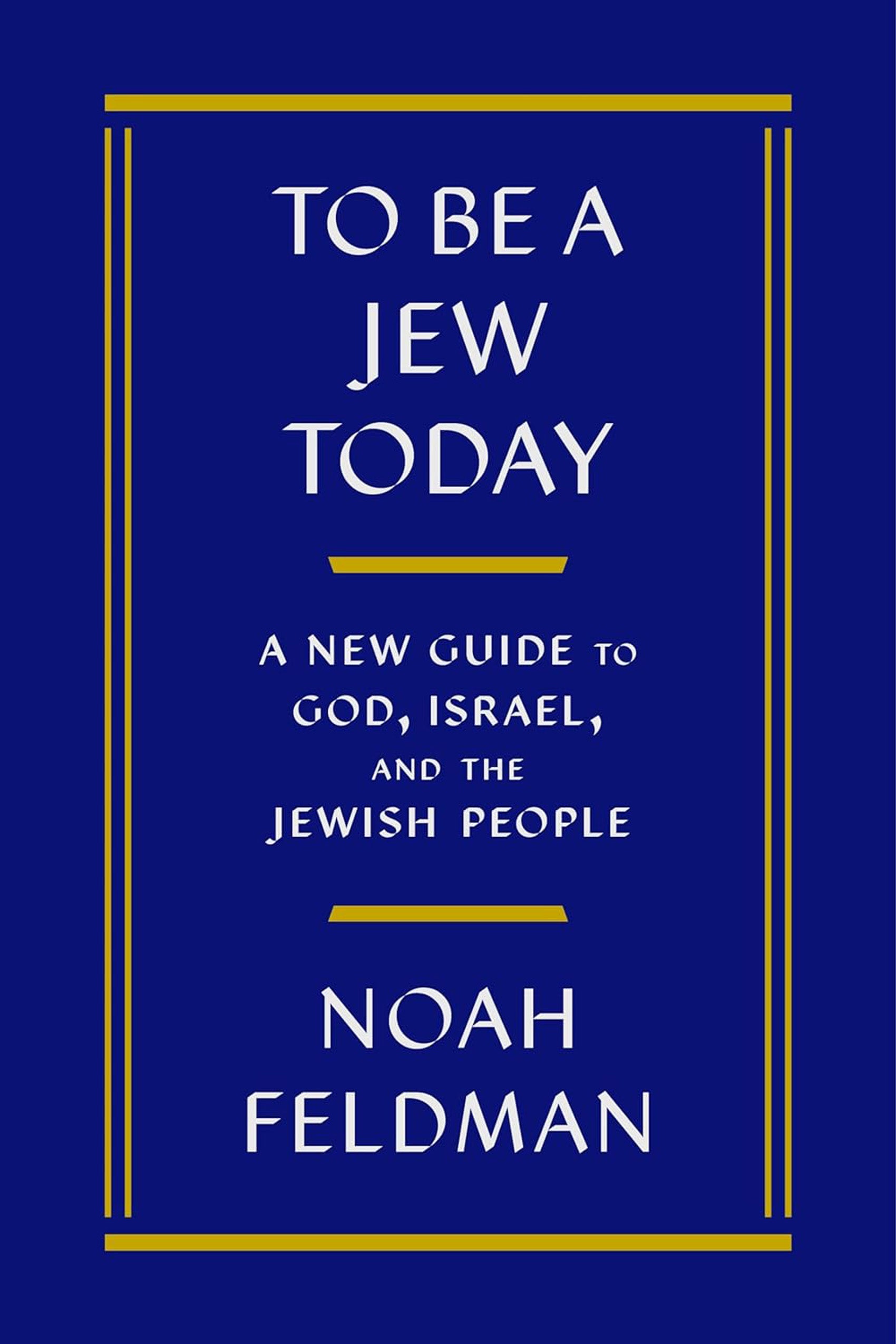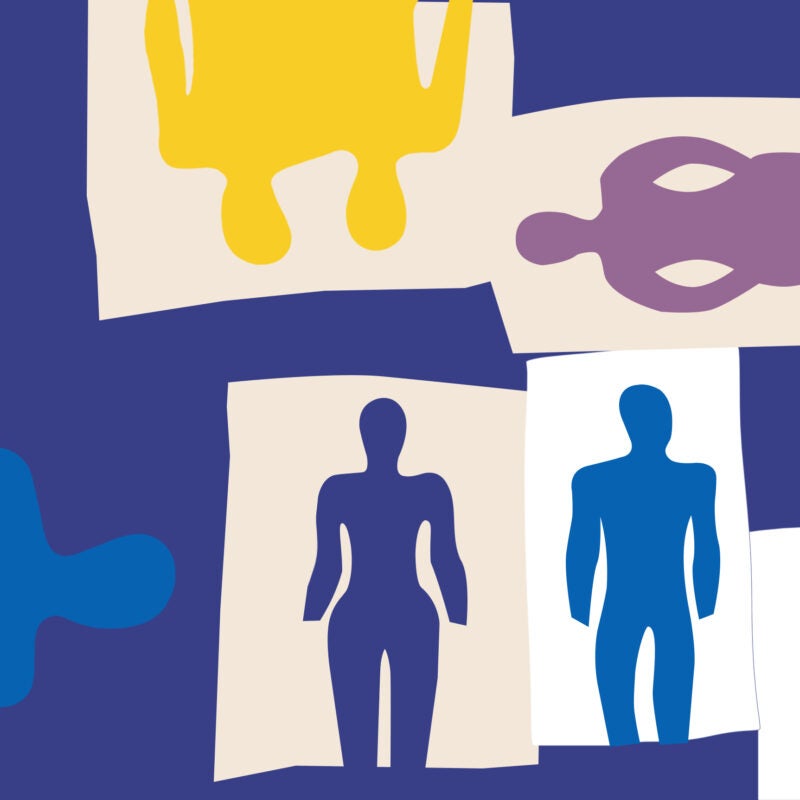Noah Feldman has heard it said many times: “I’m a bad Jew.” He’s sometimes felt the same way himself. He understands the impulse to assign that label to someone who may not fulfill the many obligations and responsibilities that are part of Jewish tradition. But to those who question their own or others’ Judaism, he offers a response that he knows not all Jews will agree with: There are no bad Jews.
“People can be Jewish in a whole range of different ways that are all valid,” he said. “If you’re being loving and struggling with what it means to be Jewish, and with God as you do or don’t understand the divine, and with Israel, and with Jewish peoplehood, then you’re a good Jew.”

In his new book, “To Be a Jew Today: A New Guide to God, Israel, and the Jewish People,” Feldman, Felix Frankfurter Professor of Law at Harvard, seeks to illuminate contemporary Jewish life and ideas in all their complexity, including beliefs about Jewish identity, intermarriage, and Zionism in the context of the modern state of Israel. It is “a guide to living with perplexity” presented by someone who has spent his life immersed in Jewish tradition and thought.
While he contends that there are no bad Jews, he outlines how Jews can hold very different beliefs about God and religious practice. He divides those belief systems into four groups: traditional, as practiced by ultra-Orthodox Jews, who shape their lives around God’s word; progressive, who emphasize social justice and the equality of humans before God; evolutionist, who are faithful to tradition and God while accepting that Jewish law can evolve; and godless (or “bagel-and-lox Jews,” as he affectionately calls them), who feel a cultural but not religious connection to Judaism.
When describing the Jewish people as a family, Feldman asks readers “to embrace both the love and the crazy.”
Though their worldviews are so different from each other that they seem to have little in common, Feldman argues that all Jews share an inexorable bond: They are part of a large extended family, defined not only by blood ties but also by chosen relationships. When thinking of the Jewish people as a family, with the variety of experiences that occur in every family, he asks his readers “to embrace both the love and the crazy, the joyful support and the enraged dysfunction.”
Like in any family, Jews can certainly disagree with each other, particularly about Israel, which, he argues, “has become a defining component of Jewishness itself.” Traditionalists, who in the past rejected Zionism as a “secular heresy,” have increasingly come to identify with the modern state of Israel and feel solidarity with its right-wing politicians, he writes. Older progressives tend to be liberal Zionists who love Israel even as they are critical of it, while those younger doubt the capability of Israel to be a liberal democracy. This generational divide intensified after the Hamas attacks on Israel on October 7, said Feldman, who at that time had finished the book but rewrote portions to reflect the reaction: “I emphasized the theme of intergenerational trauma and pain, because I saw it so powerfully in the aftermath of October 7.”
On another contentious topic, intermarriage, Feldman recognizes the distress of some Jewish parents whose children marry non-Jews and the desire for Jewish tradition to endure into future generations. He also explores the tension in discouraging intermarriage amid societal expectations that we should be free to marry whomever we happen to love, writing that “there is something troubling about saying that I can only love someone if the person is part of my Us, not if the person is part of my Them.”
“I don’t know anybody really who genuinely would say that they love their children less because of their different Jewish decisions they’ve made,” said Feldman. “Just living it out enables you to experience that in ways that are both sometimes very beautifully surprising and sometimes somewhat painfully surprising.”
The book landed on The New York Times bestseller list soon after it was published in March, a readership Feldman jokes he has not been accustomed to with his previous nine books, in areas such as constitutional studies and Middle East affairs. People have turned to his latest book in a fraught time to be a Jew, he said, adding that readers also seem receptive to his message urging empathy across differences in the Jewish community.
“I tried really hard in the book to communicate a message of inclusivity and commonality, even as I acknowledge deep and meaningful disagreements that exist,” he said. “And I optimistically think that there is an interest in hearing that message in a moment where there’s just so much division in general in the world.”
Writing the book helped him explore the ways Judaism is central to his life, he said, as well as the ways beliefs and attitudes have shifted — including his own (he notes that he has identified at some point in his life with nearly every view he discusses in the book). As a child, Feldman studied Hebrew and Torah at Maimonides School, a Modern Orthodox school in Brookline, Massachusetts, and spent time in Israel with his family and on his own. As an academic, he has directed the Julis-Rabinowitz Program on Jewish and Israeli Law since its establishment at Harvard Law School in 2015. He believes he couldn’t engage in legal topics the way that he does if he hadn’t studied Jewish law. His commitment to the Constitution and his country has been shaped by his exposure to the Jewish tradition. His Jewishness, he said, goes to the core of who he is.
